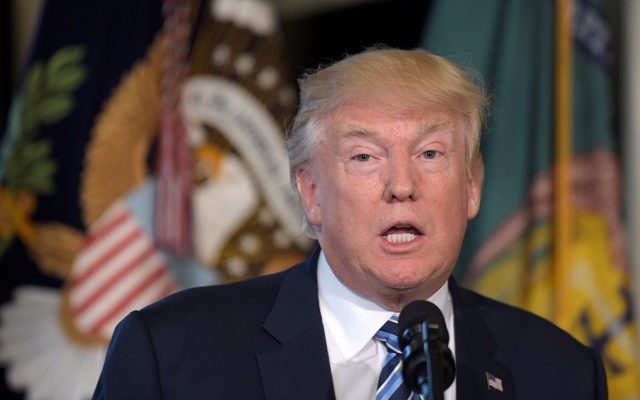Trump will press Abbas to end payments to Palestinian terrorists and their families, one of several actions Washington believes could lead to resumed peace talks with Israel.
President Donald Trump will press Palestinian leader Mahmoud Abbas Wednesday to end payments to Palestinian terrorists and their families, according to US officials. It is one of several moves Washington believes could lead to resumed peace talks with Israel.
Other actions include an end to anti-Israel rhetoric and incitement of violence, said officials familiar with plans for the meeting. It will be Trump and Abbas’ first face-to-face discussion.
Stipends for families of Palestinian terrorists killed or jailed in Israel are considered by the Jewish State as a reward for terrorists, but stopping them seems untenable to Abbas, especially at a time of broad Palestinian support for a hunger strike of prisoners held by Israel.
American officials said such a request was raised in preparatory talks with Palestinian officials, adding that three Republican senators had urged a halt to such payments in a letter to Trump that reflected widespread opinion in Congress.
While Abbas will be challenged on the payments, Trump will also use their meeting to recommit the US to helping the Palestinians improve their economic conditions, said the US officials, who were not authorized to publicly preview the talks and demanded anonymity.
They said Trump will reiterate his belief that Israeli construction in Judea and Samaria does not advance peace prospects.
Abbas Digs In
The peace process has been stalled since 2014 ,when former Secretary of State John Kerry’s efforts collapsed. Since then, there have been no serious attempts to get negotiations restarted.
“We hope this will be a new beginning,” Abbas told Palestinians at a meeting in Washington on the eve of the talks.
He blamed the lack of dialogue in recent years on the Israeli government, saying its leaders “have no political vision,” and reiterated his demands for an independent Palestinian state along pre-1967 lines, with eastern Jerusalem as its capital.
“Without this we will not accept any solution,” said Abbas, who touted an Arab League peace plan that offers Israel diplomatic relations with the Muslim world for a Palestinian state. “There is no alternative.”
Israel rejects the 1967 lines as a possible border, saying it would impose grave security risks.
In a February news conference with Netanyahu, Trump broke with longtime US policy by raising the one-state idea and withholding clear support for an independent Palestine, though officials quickly stressed he would support any arrangement agreed by the two sides.
Another contentious issue: Trump’s campaign promise to move the US Embassy in Israel from Tel Aviv to Jerusalem. The symbolic relocation would essentially recognize Jerusalem as Israel’s capital. Abbas and other Arab leaders have said that doing so would inflame already-simmering tensions.
Since taking office, Trump has backed away from the pledge, while saying it is still under discussion. On Tuesday, at an event commemorating the anniversary of Israeli independence, Vice President Mike Pence said the White House was giving “serious consideration” to the idea.
Pence also said Trump was making progress towards peace, though he didn’t elaborate, stressing that Israel’s interests would be protected.
“Thanks to the president’s tireless leadership, momentum is building and goodwill is growing,” Pence stated. “And while there will undoubtedly have to be compromises, you can rest assured: President Donald Trump will never comprise the safety and security of the Jewish state of Israel. Not now, not ever.”
By: AP





